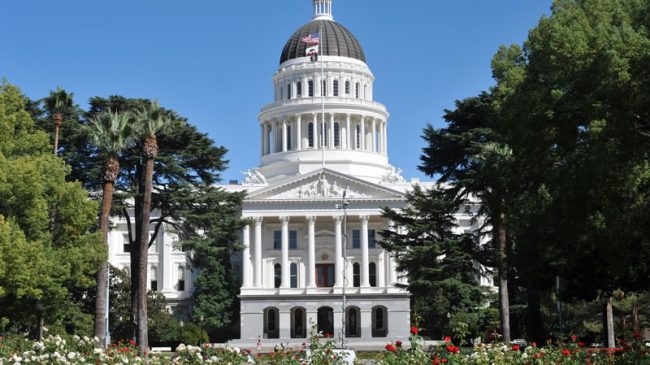Voter Guide: 2016 California Ballot Initiatives
Prop 54 changes public access to the legislative process. First, new laws would have to be available in final form in both print and on the internet for at least 72 hours before being voted on by the full legislative house. Exceptions would be allowed for public emergencies, but that emergency must be declared by the governor, and even then waiving of the 72-hour rule must be approved by a 2/3 vote of the legislative house. Second, it requires the legislature to make audiovisual recordings of all proceedings and post them on the internet within 24 hours. It also allows any person to record legislative proceedings. While the proposition exempts closed sessions from these obligations, it imposes new transparency requirements for the reasons for closed sessions. Finally, it makes the official recordings public information and allows people to use the recordings of legislative proceedings for any legitimate purpose without paying any fees to the state.
Fiscal Impact
The Legislative Analysist’s Office estimates it would cost $1 million to $2 million to start up and approximately $1 million per year to meet these requirements.
Proponents’ Arguments For:
Proponents of Prop 54 argue that too many laws are rewritten at the last minute with neither legislators, nor the public nor the press having enough time to read the final version before it is voted on. They argue that Prop 54 will give everyone 72 hours to see the final language of legislation and to speak out on it if they desire, while allowing an exception for emergencies.
Prop 54 will stop the practice of “gut and amend,” in which, at the last minute, all the language of a bill can be completely replaced right before going to a vote, giving no opportunity for public input. This practice makes a mockery of democracy and gives the special interests in the legislature a massive advantage over citizens and activists who care about legislation by cutting them out of the debate.
Proponents argue that requiring audiovisual recordings of legislative proceedings will let everyone—not just the lobbyists who spend every day at the legislature—see the hearings, votes, and other activities of their legislature. And Prop 54 would ensure the videos are available for at least 20 years for the historical record. Allowing individuals to record open legislative meetings empowers the citizens and helps those who cannot attend. The councils and boards of 69 cities and 37 counties in California record their meetings and post them online; the legislature should catch up with the digital era.
Prop 54 also frees that video up to be used in any way by anyone. Current restrictions on video usage are a huge obstacle to government transparency. All legislative video should be available to all citizens for any purpose they desire so that the video is manipulated and interpreted by the people and is not filtered by censorship.
The costs of this transparency should be part of regular and sensible legislative operations and budget and require no new taxpayer money.
Opponents’ Arguments Against:
Opponents of Prop 54 argue that it complicates the legislative process for no good reason and would actually empower special interests more than the current system.
They say these new rules would slow down important bills like balanced budgets, the Fair Housing Act, and last year’s bond measure to address the drought. If any change, no matter how slight, is made to a bill during the review period, it has to start all over again with another 72-hour wait.
Moreover, important bills like those might not even pass under the new rules because the 72-hour delay allows special interests more time to undermine the compromise in support of the bill. This would give special interests even more power than they already have.
Finally, one way California keeps a lid on political attack ads is by not allowing the use of legislative proceedings campaign ads. Prop 54 ends this restriction, allowing recordings of legislative proceedings to be mined for footage to use in distorted attack ads that will flood the airways every election.
Discussion:
The opponents essentially argue that the fewer people who know what is in a piece of legislation, the less likely it is that special interests will interfere with the goals of legislators. The proponents don’t buy that and think the more people who know what is in legislation and can analyze and think about it, the less influence special interests will have over the process.
The latter argument is much more persuasive. The current process clearly gives the lobbyists, who are in the legislative offices and halls every day, far more influence. And last-minute language in legislation is such a common practice that often the press, public, and even voting legislators have no time to review and think about what a proposed law does. That is madness and fundamentally undemocratic.
Improving transparency of the legislative process is the first step to improving accountability.
Everyone should have a chance to know and respond to legislation before it is voted on. Everyone should have a chance to view the legislative process and activities, the debate, the discussion and the votes.
Yes, political attack ads are unpleasant. But they were nasty way before video was ever invented, and worries that video of legislative proceedings will fuel them pales in comparison to the benefits of citizens getting to see their legislators and legislature operate. And along with campaign ads, the recordings will also be available for media and research purposes, watchdog groups and many beneficial efforts.
The fact that hundreds of local governments and many other states post bills online before votes and make video of all their proceedings available show how easy and sensible it is. The costs of setting up and managing the system are really the costs of an open democracy.


